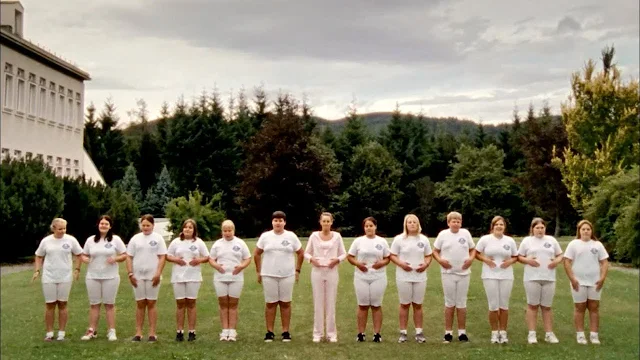Cast: Yoshitaka Zushi, Kin Sugai, Junzaburo Ban, Kiyoko Tange, Hisashi Igawa, Hideko Okiyama, Kunie Tanaka, Jitsuko Yoshimura, Ryo Sawagami, Yoko Kusunoki, Noboru Mitani, Hiroyuki Kawase, Hiroshi Akutagawa. Screenplay: Akira Kurosawa, Hideo Oguni, Shinobu Hashimoto, based on a novel by Shugoro Yamamoto. Cinematography: Yasumichi Fukuzawa, Takao Saito. Art direction: Shinobu Muraki, Yoshiro Muraki. Film editing: Reiko Kaneko. Music: Toru Takemitsu.
Akira Kurosawa's first film in color, Dodes'ka-den was a critical hit, earning an Oscar nomination for foreign language film, but a commercial failure, sending the director into a deep, near-suicidal depression. It's a curious grab-bag of stories of people living in a trash dump, their lives connecting only tangentially for the most part. It has the appearance of such post-apocalyptic films as Children of Men (Alfonso Cuarón, 2006), Delicatessen (Marc Caro and Jean-Pierre Jeunet, 1991), Escape From New York (John Carpenter, 1981), Snowpiercer (Bong Joon-ho, 2014), Stalker (Andrei Tarkovsky, 1991), and The Bed Sitting Room (Richard Lester, 1969), though its setting is on the fringes of the actual 20th-century Japan -- apocalypse nigh, if you will. The title comes from what is perhaps its central figure, the mentally challenged Roku-chan (Yoshitaka Zushi), who is obsessed with streetcars and chugs through the dump chanting the nonsense words of the film's title, meant to be an evocation of the sound of the tram on the tracks.









